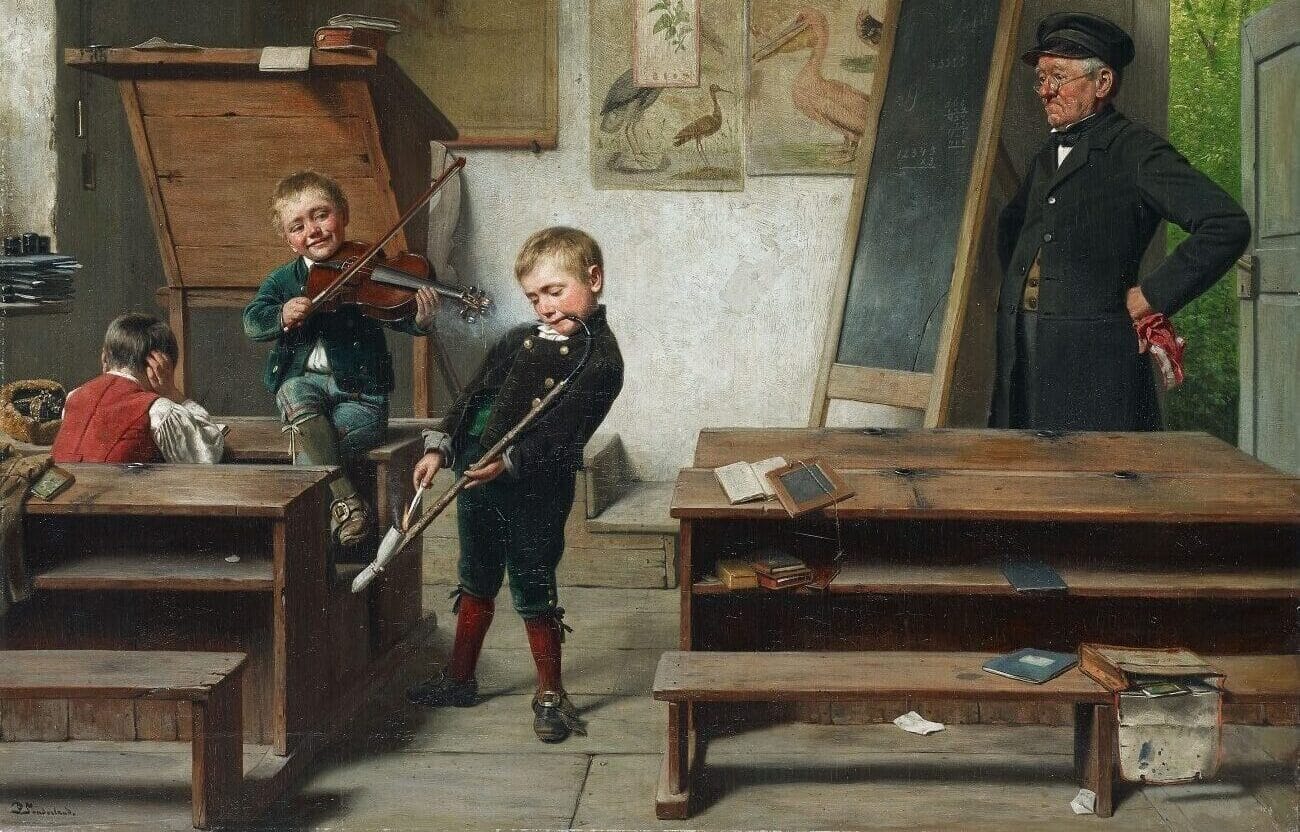Why Tennessee is ready for education reform: A conversation with Rep. William Slater

William Slater represents Gallatin in the Tennessee House of Representatives. A staunch advocate for limited government and fidelity to the Constitution, Slater is leading to make sure Tennessee is prepared for reforms in the education landscape. Rep. Slater is also a dean at Welch College, a Christian institution of higher learning in Gallatin. He recently spoke with American Habits editor Ray Nothstine.
Nothstine: There is action on eliminating or downsizing the US Department of Education, their authority and budget. We just heard about President Trump’s executive order, though Congress ultimately controls the department’s fate. How do lawmakers in Tennessee prepare? How do you handle potential funding cuts or agency restructuring?
Rep. William Slater: I’ve been working on legislation even before President Trump was elected. It is currently working its way through the Tennessee General Assembly.
For years, I’ve asked a key question in the Tennessee legislature: “What if federal education funding dries up?” We know spending is unsustainable and major reform is needed. I began drafting legislation last summer. But now, with Trump’s recent win, the conversation has shifted from if the department changes to how education will look if it’s eliminated or significantly overhauled.
The bill establishes a legislative task force that will meet through the end of the year to monitor changes to the Department of Education and the flow of federal funds. We expect federal funding to continue, but the challenge has always been the way taxpayer money is handled. It’s sent to Washington in buckets but returns in dribbles—loaded with strings attached.
I want to fully cooperate with the Trump administration to reduce federal bureaucracy and save taxpayers money while improving efficiency by directing education funds straight to the states. Trump has suggested this could take the form of block grants, but whether that will be the outcome remains uncertain.
I don’t believe the word “education” is in the Constitution. We have a Tenth Amendment that seems clear. Obviously, not so much for others. In your position as a state lawmaker, where might the federal government be needed on education? When working on committees and legislation, where is federal involvement useful?
Rep. Slater: Our founders were highly educated, and by the time of the Declaration of Independence, the colonies already had over a century of higher education in the American colonies. Prestigious institutions existed long before we became a nation. While the founders valued education, they intentionally left it out of the Constitution.
They left it out of the Constitution on purpose because that is not the role of the federal government. To your point regarding the Tenth Amendment, those things that are not enumerated in the Constitution are left to the states or to the people respectively. Yet today, the federal government is deeply entangled in this space, far beyond what the founders envisioned.
Still, we need to assess where we stand now. Even if President Trump could instantly eliminate the Department of Education, federal education laws—such as the Elementary and Secondary Education Act (ESEA) and the Individuals with Disabilities Education Act (IDEA)—would remain. Federal funding for education comes to states through two main channels, and those wouldn’t disappear with the department itself.
One major source of federal education funding supports students with disabilities, which falls under the Department of Education. The other comes from the Department of Agriculture, funding free and reduced lunch programs. Even if the Department of Education were eliminated, the Department of Agriculture and its related legislation remains in place.
To be more direct: What is the federal government’s role in education? Ideally, none. However, given where we are today, the federal government still influences states. My hope is that this influence will continue to diminish.
What have been the big challenges regarding some of the federal funds that you do see coming in? Have there been concerns with certain mandates or guidance letters tied to federal funding in your state? What do your constituents say?
Rep. Slater: It’s not been guidance letters. I passed legislation last year that requires our Tennessee Department of Education to forward to the legislative body through the chairs of the education committees any guidance documents that come from the federal department. That was step one.
The real issue lies in the administrative burden placed on local schools and districts. Schools must dedicate significant personnel to manage federal funding, comply with mandates, and handle extensive reporting requirements at both the district and state levels.

If this legislation passes, which I expect, one of the key areas the task force will examine is the number of state employees dedicated to monitoring federal legislation and managing the flow of federal funds to the state. Additionally, we’ll assess how many district employees are responsible for keeping track of federal mandates.
I don’t hear much from constituents about this issue. For many working parents, their focus is on providing for their families, getting their kids to school, and managing daily life. While the burden on districts and the state is evident, many districts don’t view it as a burden but rather as an opportunity to fill another government job.
Unfortunately, not everyone is interested in reducing the size of government but use government to create jobs at every level. Of course, the only jobs government creates are government jobs.
Tennessee has been a leader on school choice. You now have a robust school choice law. What makes education policy best handled at the hyper local level? Elias Boudinot, who was a Christian journalist and writer, talked about good government beginning in the family — and when that erodes everything else spirals down from there. Why is the family so key rather than decisions being dictated by Washington or Nashville?
Rep. Slater: To me, an understanding of government begins with an understanding of Scripture. God established three key institutions. The first is the home, as we see in Genesis 2:24: “Therefore shall a man leave his father and mother and cleave to his wife, and they shall become one flesh.” In other words, God established the family.
Parents are not the only teachers of their children but should remain their primary teachers. Unfortunately, there are times when parents don’t fully embrace this responsibility, but it is a responsibility given to the home. However, we must also remember that God established government, and Scripture is clear on that. I think some forget this and assume government is always the enemy.
I like to think of the different roles created as an “umbrella of authority.” The home, for example, is responsible for its members. That includes providing for them, protecting them, educating them, and nurturing their spiritual well-being.
The role of government comes into play when someone—such as a family member—commits a crime like murder or theft. In Romans 13, we see that government has a twofold purpose: to reward those who do right and punish those who do wrong. At its core, this is the government’s God-given role. We are not meant to take the law into our own hands but to fulfill our responsibilities while allowing government to carry out its proper function.
And then there’s the Church. Even if it’s outside today’s discussion, it’s still relevant. The Church has not always fulfilled its role. One of its key responsibilities is to care for the fatherless and the widow. In other words, when a family structure breaks down—whether through tragedy or circumstances beyond someone’s control—the Church is meant to step in. Charity is not the government’s role; it’s the Church’s responsibility.
Christ loves the Church and gave His life for it. I love the Church too, but unfortunately, the Church has not done enough to fulfill its role. When the Church isn’t doing what it should and families aren’t fulfilling their responsibilities, we begin to lose our freedoms and government steps in to fill that vacuum.
Just broadly speaking, what needs to happen to expand educational freedom, nationally and in Tennessee? It’s obvious that a lot of states are stepping up to be more innovative. They’re the laboratories of democracy. Are there other things that need to occur in Tennessee for the achievement gap to catch up with first-world nations?
Rep. Slater: While I am a strong advocate for school choice and school freedom, I don’t think those policies should be implemented at the national level and I would not support a federally mandated choice program.
Our founders didn’t give us a framework where the national government steps in on every issue.
That said, I do think there’s value in comparisons. The NAEP (Nation’s Report Card) is useful for measuring how Tennessee stacks up against states like Florida or California, and international comparisons can also be helpful.
There is room to expand school choice in Tennessee.
I’m excited that we were able to pass the Education Freedom Act here in Tennessee. While it’s a big step forward, it is somewhat limited in scope. In the first year, the number of students who can receive the Education Freedom Scholarship is capped at 20,000. There are no geographic restrictions, but there is an economic one. The first 10,000 scholarships are reserved for students at a certain income level, while the remaining 10,000 are available through universal choice.
There are measures in place to ensure that the program doesn’t grow exponentially; it can only grow incrementally. One of the challenges we face, especially in states that have introduced scholarship opportunities, is that, when there are limits in place, it can be difficult to reach a wide audience. For example, we might have 20,000 potential applicants, but getting the word out effectively is a challenge.
Now, here’s where I do hear from constituents quite a bit. I have constituents that call me, text me, or shoot me an email saying, “When can we apply?” There is room to expand school choice in Tennessee. We already have two programs in place, and this is the third one and the largest universal one.
Educational freedom isn’t always about whether taxpayer money is funding educational choice; sometimes, it’s simply about the choice itself. We’re fortunate in Tennessee to have a homeschool-friendly environment. I don’t know of any family in Tennessee who wants to homeschool and can’t. Personally, I consider myself a school-choice purist. I believe that if a parent wants to choose a traditional public school, they should have that option as well.
Parents should have confidence that when their child attends school, they will receive a quality education—one that isn’t weighed down by ideological agendas, especially those that don’t reflect Tennessee values. Here, we have a strong sense of who we are. The typical Tennessean loves God, loves their country, believes in traditional marriage between a man and a woman, and recognizes that there are only two genders. When parents send their children to a public school, they shouldn’t have to navigate through a wave of distractions or politicized narratives. They should be able to trust that their kids are receiving an education that prepares them for success without compromising their values.
I wanted to ask you about higher ed. I hear Gov. Ron DeSantis in Florida talk about this some, but there’s been increasing discussion about legislative oversight of public universities, particularly when it comes to making sure their reflecting the values and interests of Tennesseans, which you mentioned. Do you believe that the state legislature has a role in shaping higher education policy? Has there been success in that area in Tennessee and what needs attention?
Rep. Slater: When it comes to public institutions, policy decisions should rest with state legislatures that are much closer to the citizens they serve. That’s why we have a constitutional republic, and we act as representatives of the people.
Private institutions of higher education should be left alone. As for public higher education, the legislative branch should be responsible for oversight.

Tennessee’s state universities are governed by boards of trustees, who oversee hiring and firing college presidents, support leadership, and shape faculty direction. These boards hold the real power. The key question is: Do we have the right trustees?
Often, these positions are more honorary than truly governing. Instead of holding the president accountable, faculty end up calling the shots, so to speak. What we need are bold and courageous trustees at higher education institutions—trustees who will stand firm and say, ‘No. We’re going to reflect Tennessee values. We’ll ensure true freedom of speech on campus and won’t just allow leftist ideas.
Should state legislators take a stronger role in ensuring students understand federalism and the Constitution? I know a lot of states have passed laws trying to improve civics. Is that a good action?
Rep. Slater: Yes. States should take a stronger role when it comes to promoting federalism, civic engagement, and our Constitution. Now, as the old saying goes, the devil is in the details. Who is teaching our kids about the Constitution and about federalism? Is the Constitution being looked at as a document that was given to us by our founders to chain the government or is it being looked at as a document that the founders gave us for citizens to grab new expressions of rights or handouts?
The teacher, standards, and curriculum are all very important. Oftentimes, you can say, “Well, hey, we want more emphasis on civics. We want more emphasis on the Constitution.” I don’t know if it’s the same way where you are, but there’s misinformation about what the Constitution even is and what those rights are.
If we’re not teaching true freedom of speech, and if we’re falsely teaching that the founders wanted to keep God out of the public square—promoting the old, worn-out adage of ‘separation of Church and state’ (which, of course, isn’t in the Constitution but is often taught as though it is)—then I don’t want more of that. The answer is yes, but it depends.
You nailed it when you said, “What are the meaning of rights?” If people don’t have a proper understanding of that, foundations crumble. It doesn’t mean “I get stuff.”
Rep. Slater: It starts with a proper understanding that our founders had that we are endowed by our creator with unalienable rights. If an understanding of the Constitution doesn’t start with the fact that God is the one who has given us our rights to life, liberty, and the pursuit of happiness, then we’re off on the wrong track.
Many are taught that the government grants rights and that the Constitution defines those rights. But the founders understood that our rights are inherent. The Constitution doesn’t restrain citizens—it restrains the government from infringing on those rights. Even within our state, what’s taught in Putnam County may differ from what’s taught in Davidson County, home to Nashville.
That’s why we must expand parental choice in education. Whether parents prefer a Christian school, classical school, private school, or homeschooling, they should decide who educates their children. I intentionally avoid saying, “Schools should not be places of indoctrination.”
I prefer students to receive sound teaching rooted in biblical and constitutional principles, with a clear understanding of federalism. The real issue isn’t whether indoctrination happens—it’s who is doing the indoctrinating.
I want to ask you about Tennessee. Do you have a favorite Tennessee tradition or something unique to the volunteer state that you love and enjoy?
Rep. Slater. The folks in Tennessee are friendly people. Visitors often tell me how strangers greet them in grocery stores. My brother and sister-in-law, after years in Pennsylvania, are now retiring here for that reason.
They could not believe how friendly folks are, even in a Lowe’s or Home Depot, where folks will come up and engage with them and say, “Hey, let me take you right to that spot.” You can sit at a green light, and you can go through two cycles and nobody’s going to honk at you because that’s just impolite.
We are civil and kind to one another, and people notice that. Even within the legislature, only a few fail at decorum. Both parties recognize the importance of mutual respect and collaboration. While we may disagree, we remain committed to treating each other with kindness, praying for each other and sometimes together. In Tennessee, nearly every city and county commission meetings begin with prayer and the Pledge of Allegiance. I’d like to think that’s common everywhere, but visitors from other tell me it’s not—at least compared to much of the country.



